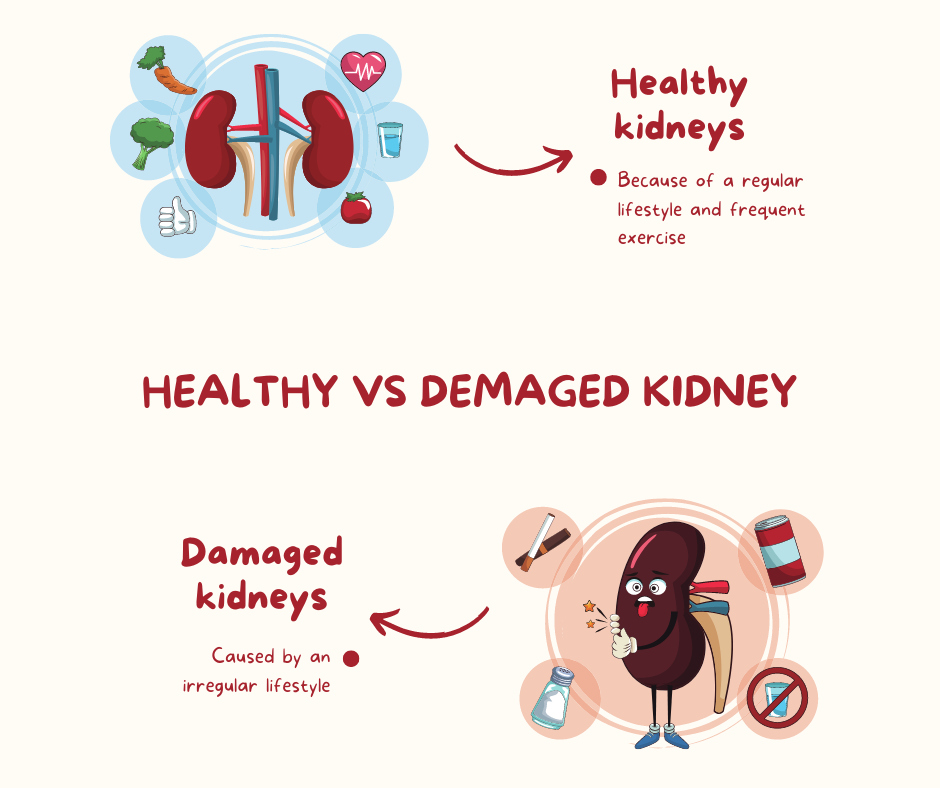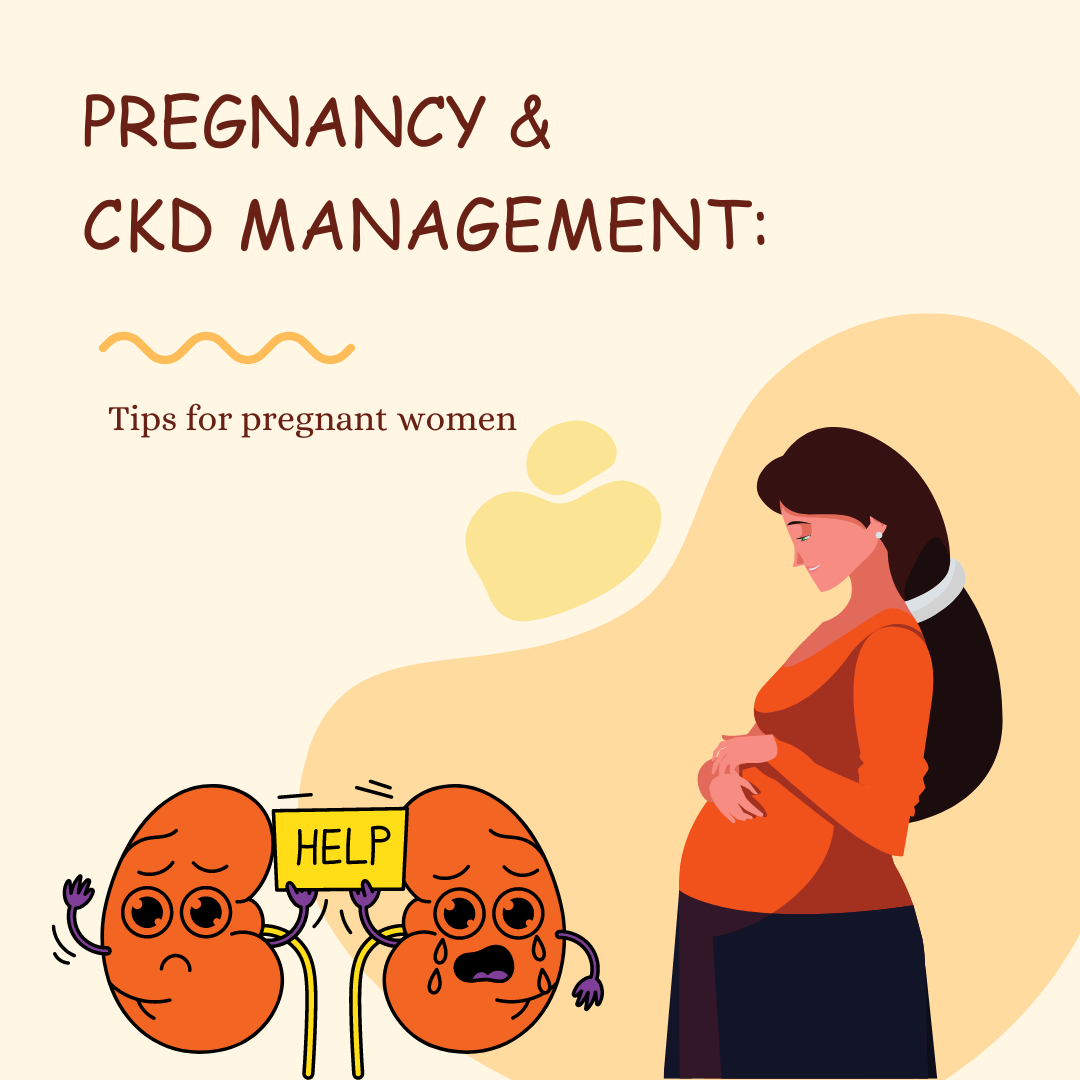Introduction to Chronic Kidney Disease Stage 3
CKD is a progressive condition that affects the proper functioning of the kidneys. Among the various stages of CKD, stage 3 is a critical juncture that requires careful management and attention. In this article, we will delve into the latest treatments for CKD, explore the possibilities of reversing stage 3 to stage 5, understand the significance of creatinine levels, and discuss the various aspects of CKD, including its causes, symptoms, and types.
Latest Treatments for Chronic Kidney Disease:
Medical science continually evolves, and so do the treatment options for CKD. From medications to lifestyle modifications, patients have an array of choices. Emerging treatments in 2023 include innovative medications designed to slow down disease progression, advanced dialysis techniques, and even cutting-edge regenerative therapies. These options provide hope for improved quality of life and prolonged kidney function.
Early Signs of Kidney Disease:
Identifying kidney disease in its early stages enhances the chances of effective intervention. Common signs include changes in urination patterns, swelling in the extremities, fatigue, and changes in urine color. Recognizing these signs and seeking medical attention promptly can lead to better outcomes.
Significance of Creatinine Levels in Stage 3 Kidney Disease:
Creatinine levels serve as a crucial indicator of kidney function. In stage 3 CKD, the creatinine level is higher than normal, reflecting impaired kidney filtration. Monitoring creatinine levels allows healthcare professionals to gauge the severity of the disease and tailor treatments accordingly.
Progression from Stage 3 to Stage 4 Kidney Disease:
The progression from stage 3 to stage 4 CKD varies among individuals. Factors such as lifestyle, genetics, and adherence to treatment play a role. On average, this transition can take several years. Regular follow-ups with medical professionals are essential to track the progression and adjust treatment plans as needed.
Stages:
| Stages | Kidney function/ GFR | Description |
| Stage 1 | >90% | Normal or High function |
| Stage 2 | 60-89% | Mildly decreased function |
| Stage 3 | 30-59% | Mild to Moderately
Decreased function |
| Stage 4 | 15-29% | Severely Decreased Function |
| Stage 5 | <15% | Kidney Failure |
Causes and Types of Kidney Disease:
Kidney disease can be caused by various factors, including
- Diabetes
- High blood pressure
- Certain autoimmune conditions
Types:
There are four primary types of kidney disease
- Glomerular diseases
- Tubulointerstitial diseases
- Hereditary kidney diseases
- Cystic diseases
Each type has distinct characteristics and requires specific treatment approaches.
Best Treatments for Chronic Kidney Disease:
The best treatment for CKD depends on factors such as the underlying cause, disease progression, and individual health status. Common approaches include medication management, dietary modifications, blood pressure control, and dialysis or kidney transplantation for advanced stages. Collaborating closely with healthcare professionals ensures personalized and effective treatment plans.
New Advances in CKD Treatment in 2023:
The field of nephrology is witnessing remarkable advancements in CKD treatment. Regenerative therapies, precision medicine, and targeted drug therapies are on the horizon. These breakthroughs offer hope for improved outcomes, enhanced quality of life, and better disease management.
First-line Treatment for CKD Patients:
For CKD patients, the first-line treatment typically involves lifestyle modifications. This includes adopting a kidney-friendly diet, reducing salt intake, staying hydrated, managing blood pressure, and avoiding tobacco and excessive alcohol consumption. Following these recommendations can significantly contribute to maintaining kidney health.
Managing CKD with Nutrition:
A cornerstone of CKD management is a well-balanced, kidney-friendly diet. Incorporating nutrients like low-sodium foods, lean proteins, and limited phosphorus can help alleviate the burden on the kidneys. Human nutrition plays a crucial role in supporting overall health, including kidney function. This resource provides valuable insights into nutrition’s impact on our well-being.
Lifestyle Changes and CKD:

Beyond diet, certain lifestyle changes can make a significant difference for CKD patients. Regular physical activity, maintaining a healthy weight, and managing stress can contribute to overall well-being. These factors not only aid in CKD management but also have positive effects on heart health and blood pressure regulation.
Managing CKD while maintaining work and lifestyle commitments requires careful planning and communication. Openly discussing your condition with your employer, adjusting your work schedule if needed, and prioritizing self-care can help strike a balance between health and daily responsibilities.
Importance of Regular Check-ups:
Frequent visits to a nephrologist are vital for individuals with CKD. Regular check-ups enable healthcare professionals to monitor disease progression, adjust treatment plans, and address any emerging issues promptly. Staying proactive in managing CKD can lead to better outcomes and improved quality of life.
Support Networks for CKD Patients:
Living with CKD can be challenging, both physically and emotionally. Connecting with support networks, such as patient groups, online forums, or local support groups, can provide a sense of community and shared experiences. These networks offer a platform to exchange information, seek advice, and find encouragement throughout the CKD journey.
Empowering Patients through Education:
Education is a powerful tool in managing CKD effectively. Patients and their caregivers should seek out reputable resources, such as medical websites, research articles, and trusted healthcare professionals. Staying well-informed empowers individuals to actively participate in their treatment plans and make informed decisions about their kidney health.
Innovations in Telehealth for CKD Management:
In the digital age, telehealth has emerged as a convenient way to manage chronic conditions like CKD. Telehealth platforms allow patients to consult with healthcare providers remotely, reducing the need for frequent in-person visits. This approach is particularly beneficial for individuals who may have limited mobility or live in remote areas.
Mind-Body Connection in CKD:
The mind-body connection plays a significant role in overall well-being, especially for individuals with chronic conditions like CKD. Practices such as mindfulness meditation, yoga, and relaxation techniques can help manage stress, reduce anxiety, and improve emotional resilience, ultimately contributing to a better quality of life.
Patient-Centric Approach to CKD Treatment:
Medical professionals increasingly recognize the importance of a patient-centric approach to CKD management. This approach involves tailoring treatments to the individual’s needs, preferences, and lifestyle. By actively involving patients in decision-making and addressing their unique concerns, healthcare providers can enhance treatment adherence and overall outcomes.
Advocating for Kidney Health Awareness:

Raising awareness about kidney health is crucial for early detection and prevention of CKD. Public education campaigns, community workshops, and informational resources can help spread knowledge about risk factors, symptoms, and preventive measures. By advocating for kidney health awareness, we can work toward reducing the impact of CKD on individuals and society.
Navigating Dietary Restrictions and CKD:
Managing dietary restrictions is a key aspect of CKD management. Patients must learn to navigate foods that are high in potassium, phosphorus, and sodium, as these can exacerbate kidney dysfunction. Collaborating with a registered dietitian who specializes in kidney health can help individuals create meal plans that support their nutritional needs while safeguarding their kidneys.
Monitoring Medication and CKD:
Many individuals with CKD are prescribed medications to manage various aspects of their condition. However, it’s important to understand that kidney function affects how medications are processed in the body. Some medications may need to be adjusted to prevent potential harm to the kidneys. Regular communication with healthcare providers and pharmacists is crucial for safe medication management.
Personalized Exercise Plans for CKD Patients:
Physical activity can have positive effects on overall health, including kidney function. However, individuals with CKD should work with healthcare professionals to develop personalized exercise plans. Activities like walking, swimming, and gentle yoga can improve cardiovascular health, enhance energy levels, and contribute to better management of CKD.
Family Support and CKD:
CKD not only affects the individual diagnosed but also has an impact on their family members and caregivers. Building a strong support system is essential for emotional well-being. Family members can play a vital role in helping individuals adhere to treatment plans, offering encouragement, and creating a conducive environment for kidney health.
The Role of Genetics in CKD:
Genetics can play a significant role in the development of CKD. Certain genetic factors can predispose individuals to kidney diseases. Understanding your family history and potential genetic risk factors can help in early detection and proactive management of CKD. Genetic testing and counseling may be recommended for those with a family history of kidney disease.
Emotional Resilience and CKD:
Living with a chronic condition like CKD can take a toll on mental and emotional well-being. Feelings of anxiety, depression, and frustration are not uncommon. Seeking support from mental health professionals, engaging in relaxation techniques, and connecting with support groups can help individuals build emotional resilience and better cope with the challenges of CKD.
Pregnancy and CKD Management:

For women with CKD, pregnancy requires careful planning and monitoring. The condition can impact fertility and pose risks to both the mother and the developing baby. Consulting with healthcare providers before conception and receiving specialized prenatal care can optimize the chances of a healthy pregnancy and birth for women with CKD.
Holistic Approaches to CKD Care:
In addition to medical treatments, holistic approaches can enhance CKD management. Complementary therapies such as acupuncture, massage, and aromatherapy may offer benefits in managing symptoms and promoting relaxation. Consulting with healthcare professionals before incorporating these therapies is advisable.
Financial Considerations and CKD:
Managing CKD may involve medical expenses, medications, and lifestyle adjustments that impact finances. Exploring options for health insurance coverage, understanding available resources, and discussing financial concerns with healthcare providers can help individuals and their families navigate the financial aspects of CKD management.
Advocacy for Improved CKD Awareness:
Advocacy is essential for driving positive change in CKD awareness, research, and policy. Individuals living with CKD, their caregivers, and healthcare professionals can collaborate to raise awareness, push for funding, and promote policies that support early detection, research, and improved access to treatments.
Role of Technology in CKD Management:
Technology is playing an increasingly significant role in healthcare, and CKD management is no exception. Mobile apps, wearable devices, and telehealth platforms can help individuals monitor their kidney health, track medications, and communicate with healthcare providers remotely. Embracing these technological advancements can enhance convenience and improve overall CKD management.
Dietary Supplements and CKD:
While dietary supplements may seem like a potential solution, individuals with CKD should exercise caution. Some supplements can have adverse effects on kidney function or interact with medications. It’s crucial to consult with a healthcare professional before taking any dietary supplements to ensure they are safe and appropriate for your condition.
Nutrition and Fluid Balance in CKD:
Monitoring fluid intake and adhering to dietary guidelines are crucial for individuals with CKD. Maintaining a proper fluid balance and following recommendations for sodium, potassium, and phosphorus intake can help alleviate the strain on the kidneys and support overall health.
Advocacy for Living Organ Donation:
For individuals with advanced CKD, kidney transplantation can be a life-saving option. Advocating for living organ donation and raising awareness about the process can help those in need of a kidney transplant find suitable donors. Organizations and support groups often provide resources and guidance for individuals considering or undergoing transplantation.
Embracing a Positive Mindset:
Maintaining a positive mindset can have a profound impact on the CKD journey. While challenges may arise, cultivating resilience, practicing gratitude, and focusing on the aspects of life that bring joy can contribute to overall well-being. A positive attitude can empower individuals to face challenges with greater determination and optimism.
Conclusion:
Chronic Kidney Disease stage 3 demands a proactive approach to management, encompassing medical interventions, lifestyle adjustments, and ongoing education. With the latest treatments, a focus on nutrition, and a supportive healthcare team, individuals can navigate the challenges of CKD stage 3 with resilience and optimism. By embracing a holistic strategy, those affected by CKD can strive for improved kidney health and an enhanced quality of life.
Chronic Kidney Disease stage 3 presents a critical point in the progression of kidney dysfunction. With the latest treatments, advances in regenerative therapies, and a growing understanding of the disease, there is hope for improved outcomes and enhanced quality of life. By staying informed, collaborating with medical professionals, and embracing a holistic approach to kidney health, individuals can navigate the challenges of CKD stage 3 and beyond.
Chronic Kidney Disease stage 3 presents challenges that can be managed effectively through a combination of medical interventions, lifestyle adjustments, and patient education. By embracing the latest treatments, understanding the significance of early detection, and making informed choices, individuals with CKD can lead fulfilling lives while prioritizing their kidney health.
As the field of nephrology continues to evolve and new advancements are made, individuals with CKD have reason to be hopeful about the future. By staying engaged in their healthcare journey and adopting a proactive approach, they can navigate the complexities of CKD stage 3 with resilience and optimism.


“An insightful article offering crucial dietary guidance for individuals with CKD. The emphasis on low-sodium, high-quality protein sources, and portion control is essential. This comprehensive approach can significantly enhance the quality of life and well-being for those managing CKD through thoughtful nutritional choices.”
Indeed informative